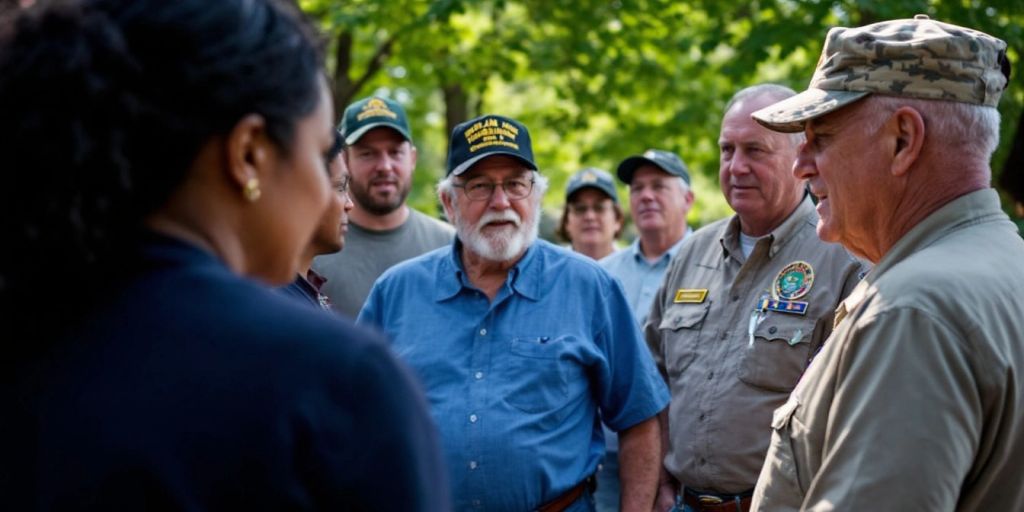Veterans Day this year saw a poignant call to action from veterans advocating for increased support for those suffering from traumatic brain injuries (TBI) caused by explosive blasts. This initiative, led by Army veteran Dennis Hernandez, aims to raise awareness and push for better treatment options for veterans affected by these often invisible injuries.
Key Takeaways
- Veterans are advocating for better support and treatment for traumatic brain injuries (TBI).
- Dennis Hernandez, an Army veteran, emphasizes the need for funding civilian organizations for research.
- Senator Elizabeth Warren is spearheading a bipartisan bill to address the issue.
The Impact of Traumatic Brain Injuries
Traumatic brain injuries have become a signature wound for veterans of the Iraq and Afghanistan wars. Many veterans, like Dennis Hernandez, have experienced the debilitating effects of these injuries, which often go unnoticed.
Hernandez, who served in the Army Special Forces and the Massachusetts National Guard, shared his personal struggles with TBI, stating, "I love my country, but I don't trust my government. I don't trust them to have my best interest at heart." His experiences with improvised explosive devices (IEDs) during training and deployment led to severe health issues, including frequent migraines and blackouts.
The Call for Action
The growing awareness of TBI among veterans has prompted a response from medical professionals and lawmakers. Senator Elizabeth Warren highlighted the need for comprehensive studies and funding to address the issue. "We pushed first to get a study, then to fund some more research, then to get a bigger study, and each time, we're starting to see kind of the edges of the problem," she stated.
Hernandez has become a vocal advocate for awareness surrounding "blast overpressure" brain injuries, which he claims were previously dismissed by the Department of Veterans Affairs (VA). He sought help from Home Base, a nonprofit organization dedicated to assisting veterans, emphasizing the importance of seeking help even when it feels taboo.
Legislative Efforts
In response to the advocacy efforts, Senator Warren has introduced a bipartisan bill aimed at tracking the impact of blasts on the brain, limiting exposure, and increasing funding for treatment. This legislative initiative seeks to ensure that veterans receive the support they need and deserve.
Warren stated, "We can do better by those who serve us, and this is a way for us to do that."
The Path Forward
Veterans are encouraged to take proactive steps in addressing their health concerns. Hernandez urges fellow veterans to get checked out and seek help as soon as possible. He believes that increased funding for civilian organizations can expedite research and treatment options, bypassing the bureaucratic delays often associated with government processes.
As the conversation around TBI continues to grow, the hope is that more veterans will receive the support they need to heal and thrive after their service. The collective efforts of veterans, advocates, and lawmakers aim to create a future where the invisible wounds of war are recognized and treated with the urgency they deserve.







